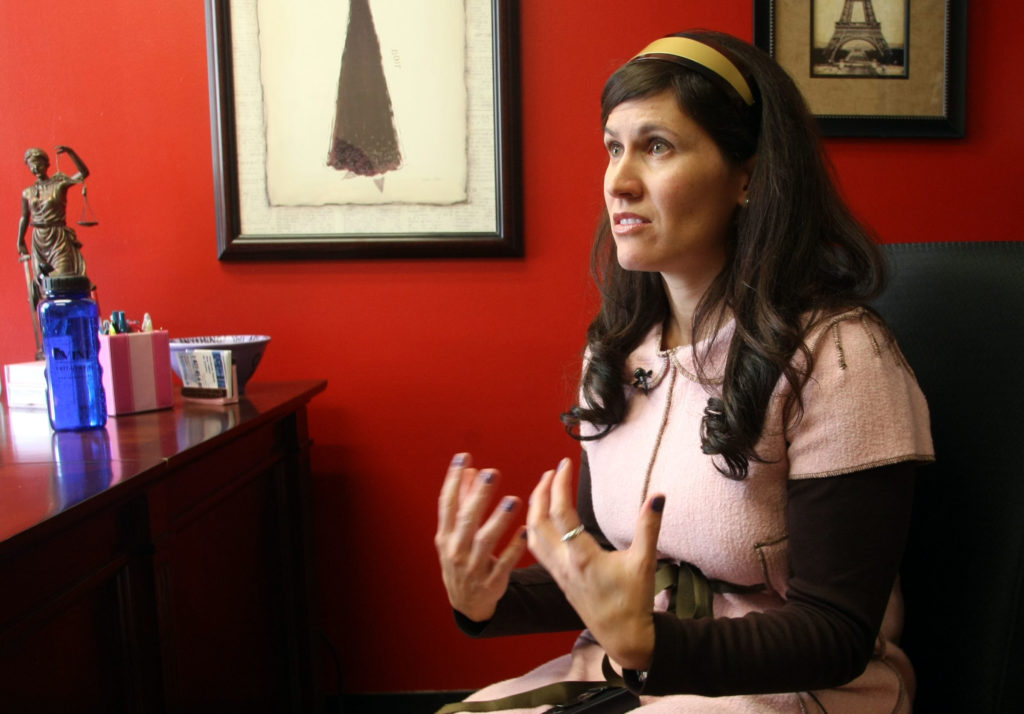
Photo Credit: Kristin Murphy, Deseret News
SALT LAKE CITY — The details of the nightmares aren’t always the same.
Sometimes it’s the faces of those killed that change.
Sometimes it’s where they die. Occasionally, it’s her who dies — or feels dead — in the dream.
But for Yvette Rodier, there is one constant in the nightmares that have plagued her since she survived a shooting 26 years ago. And that is how it feels to be caught, once again, in a violent, random attack.
“The nightmares have been me with someone that I care about, another male, often Zach,” Rodier said of Zachary Snarr, who was killed when they were shot 26 years ago by a stranger. “And we’re in random places. We can be at a restaurant, we could be at a park, we could be at somebody’s house. And then someone comes in and just opens fire and kills them. And sometimes I die or think I’m dead in the nightmare. But it’s always, for sure the other person (who has been killed).”
She pauses.
“Those are really hard to wake up from,” she said.
And the toughest aspect of living with the nightmares is that there is nothing she can do but be generous with herself.
“Just be afraid and feel sad and scared for a little bit,” she said. “You know, the unfortunate part is that now we all have these places that are not safe. So 20 years ago, me thinking I wasn’t safe at a grocery store, people would probably laugh at me. And it might take me a minute to go back to a grocery store until I either forget the dream or just move forward.”
But in 2022, random violence, even mass shootings, is so common, it doesn’t always make national news. And no place — not schools, churches, or even grocery stores — have proven to be immune to violent attacks.
“I just feel bad for other people,” Rodier said. “I’m kind of used to it now, which is horrible; but it’s my life. But for all these people, that every day (life) just changes for them, I just ache. It’s just a different world they’re entering in.”
Rodier said it’s difficult to know just how many people are changed by these random acts of violence. Those who survive with bullet wounds are not the only ones changed by the trauma these events inflict on us.
“The numbers are so much bigger than (survivors),” she said. “So many lives are changed. When someone does these horrible, random acts of violence …the ripple that goes out is so big. But we’re not really addressing that. We’re not even really addressing any of it.”
For Rodier, and other survivors, there is no choice but to wrestle the shadows, contemplate the tough questions. If they don’t, they have no hope of escaping the pain caused by a stranger.
Innocence shattered
Yvette and Zachary had been friends since junior high school, but Aug. 28, 1996, was their first ‘grown-up’ date. They spent dinner talking about how they’d spent their summers and what they hoped to find at the University of Utah that fall.
Both driven students with kind hearts, they sat on the edge of promising futures, and for an evening, all they saw was life’s possibilities.
But a 19-year-old with a gun obliterated everything.
When a man they’d never met — Jorge Benvenuto — opened fire on the teens, who were setting up camera equipment to take pictures of the full moon at Little Dell Reservoir, Snarr was killed and Rodier’s life was changed forever.
When Rodier woke up in a hospital, flanked by her parents, she knew even before anyone said anything that her friend was dead.
What she didn’t know is that her life would never be the same.
The 18-year-old left the hospital struggling with a long list of physical injuries, including a severe limp, an open wound on her side that her mother had to pack by hand every day, and bullet wounds to her head that would cause memory and concentration issues for the rest of her life.
It was the psychological wounds, however, that would be most difficult to heal.
A few days after she left the hospital, another friend from school asked her on a date. She accepted, and after a long list of explicit instructions from her mother, the young man, Dave Whitby, escorted her on what he thought would be a fun outing.
“We went to a Ute football game,” he said of the University of Utah’s team. “Worst mistake of my life.”
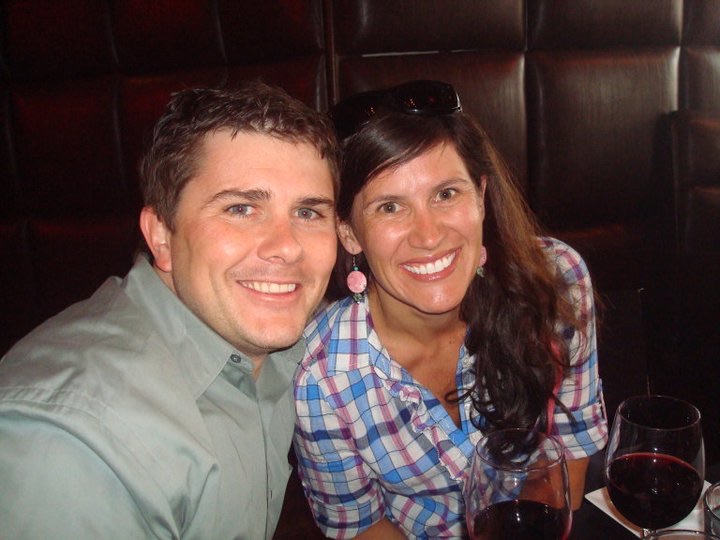
Photo Credit: David Whitby
Rodier is sitting across the room from Whitby as he recounts the date and she laughs as she interjects, “The Utes have the cannon, and none of us knew how I would respond. I did not respond well.”
Every time the team scores, they fire a cannon.
“So we had to go after maybe the second score,” he said.
Shaken, Rodier decided she’d rather go home than continue the date. The two said goodbye, and though they would eventually end up getting married, it would be a long and winding road before they would find each other again.
Finding purpose
As Rodier sat on the side of the road that night in 1996, with strangers and paramedics tending to her wounds, she began to feel guilty.
“I definitely feel so bad that I did leave him,” she said, emotion choking her voice. “I often wonder why I didn’t just stay and hold him. Why didn’t I try to put pressure on his wounds?”
Tears fill her eyes.
“I’m fairly certain he was dead when I left him,” she admits. “And … I did learn in court, the very first bullet that hit him killed him. So he was dead. But I didn’t know and why wouldn’t I have just stayed with him and just held him?”
She tries to swallow a sob.
“He would have done that for me,” she said softly.
Rodier understands that what she feels — survivor’s guilt — isn’t rational. But it doesn’t stop her from feeling guilty that she survived, that she gets to chase dreams, enjoy building a family and just live a life — all things that were stolen from Zach.
And for a long time, she tried to live her life for both of them. Every decision she made, she thought, “What would Zach do?”
“That was just more than I could do,” she said. “That was really hard. … Just because I’m human. I make all sorts of mistakes. And I know Zach would have, too, but I just felt like I was disappointing him so much, that … finally, at some point, I had to stop thinking that way.”
What Rodier couldn’t shake, however, was the idea that she had survived the brutal attack for a reason.
“I’ve wondered, like, there must be a reason I’m here, right?” she said. “I need to do something. There’s got to be some sort of purpose. And I didn’t feel it for a long, long time. And that was really hard. I kept thinking like, something’s gonna show up in my life, and it’s just gonna work.”
That feeling chased her as she pursued a journalism degree at the University of Utah, and followed her into her marriage with Jeremy Evans, a ceremony that took place about 10 months after the shooting.
Neither journalism nor marriage turned out to be that purpose she felt she had to have in the wake of the shooting. As it turned out, the purpose she was searching for came in the form of a little girl named Romney Rae.
“And the moment my daughter was born, it just hit me,” her voice quavering. “So now, I just have to make sure she stays alive.”
A new passion
Just before she became a mother, she realized broadcast journalism wasn’t the career path she wanted to pursue. So she applied to be the assistant to a newly appointed federal judge, Paul Cassell. Suddenly the shadows she’d be trying to outrun became the reason she stood out from the crowd.
“I’ve done a lot of work with crime victims,” Cassell said, noting there were about 150 applicants for the part-time job Rodier applied for, “and I’ve come to appreciate their sort of resiliency and their trust in the system that sometimes lets them down.”
He thought having Rodier in his office would be a benefit to him and to those who passed through his courtroom. He said it wasn’t just that she was a survivor of a brutal crime that made her an asset. It was her attitude and work ethic.
“Well, what was amazing about her,” he said, “was she just walked in the room and immediately lit up the room. She had such a love of life and was so outgoing and enthusiastic and cheerful.”
It was while working in Cassell’s office that she discovered her passion for the law.
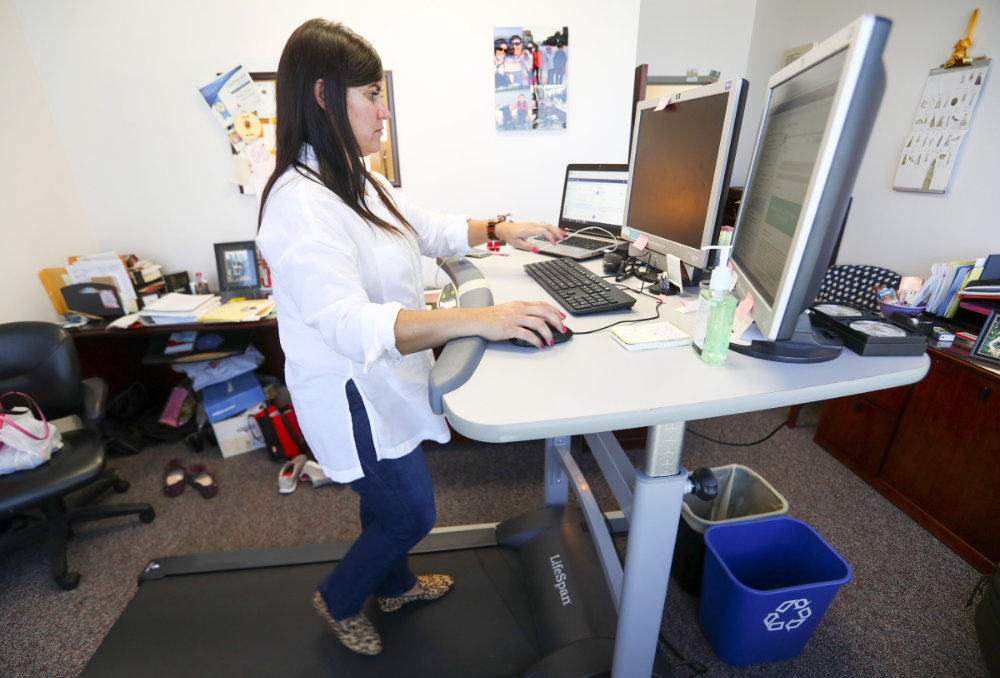
Photo Credit: Steve Griffin, Deseret News
“I chose to go to law school,” she said. “That was a really, really hard decision. So I think maybe starting to make life decisions like that gave me a little bit of confidence.”
It was not the career path anyone expected for her. It was a job, after all, that would immerse her in the criminal justice system — where her first and only experience was associated with deep trauma.
But everyone who knew and loved her noticed a change in her as she began to pursue her law degree.
“I think that it was actually very healing for her,” said her younger sister, Danielle Rodier. “I don’t want to put words into her mouth, but I think that her survivor’s guilt was a lot worse until she decided to go to law school. … I remember talking with her and her saying, ‘Why did I survive and he didn’t? I have to do something. I need to do something important, something big.’ And having Romney really helped with that. … Being a mother helped with that sense of purpose and reason for surviving.”
But law school allowed her to use the terrible things that happened to her to help others.
“It seemed that there was a clear path of how she can take her experience and use it for good,” Danielle Rodier said.
Toni Sullivan, Yvette Rodier’s aunt, said she saw a remarkable change in her niece as she pursued a law degree.
“It changed her whole trajectory,” Sullivan said. “That’s when we started seeing more glimpses and the reality of the girl that we’d known all of our life up to the date of the shooting, the one who said, ‘I can make this happen. … This isn’t going to be an easy road, but I’m going to get on this road, because I’m going to help to make a change.'”
She said Rodier had unique knowledge of the system because she’d navigated it as a victim. It made sense to everyone that she started her law career advocating for victims after she graduated in 2008.
Even as she found her purpose and her passion, she was struggling to make her marriage work. Shortly after she graduated, she and Evans divorced.
Then, on Sept. 1, 2009, she got a call that her brother Brandon was missing — and so was her father’s gun. They called the police and then they waited for news. It was when they saw a police helicopter hovering over her father’s house that they realized her fun-loving, gentle brother might be gone.
“Brandon was so much fun,” Rodier said, a smile spreading across her face as tears fill her eyes. “We knew he was in pain. And we knew that there was a potential for him to have suicidal ideations. The day he did it, we had no idea. None. He had just gotten back from a trip with my dad, and Dad said they had a great time. So for us … we didn’t know it was that dark at that moment.”
It was around that time that Rodier decided to seek mental health treatment. She’s visited with a counselor after the shooting, but she said she was young, wasn’t ready to confront the realities of what happened, and felt gunshot victims have a unique kind of trauma that maybe her therapist wasn’t able to understand.
“I think we all think, ‘Oh, you need to go right now. Fix this right now,'” she said. “And that for me wasn’t wasn’t helpful. It made it feel like I wasn’t doing what people thought I needed to do.”
But once she was ready, counseling helped her deal with survivor’s guilt and the accompanying lies it told her.
“It was entirely me keeping myself stuck,” she said. “I think a lot of it is survivor’s guilt. That if I’m not stuck, then I’m not being aware of Zach and him being gone. If I stay stuck, that means I’m acknowledging everyday that I’m alive and Zach’s not. … I don’t think I felt worthy enough. … I don’t think I felt like I had value that would let me be me without the shooting as part of me.”
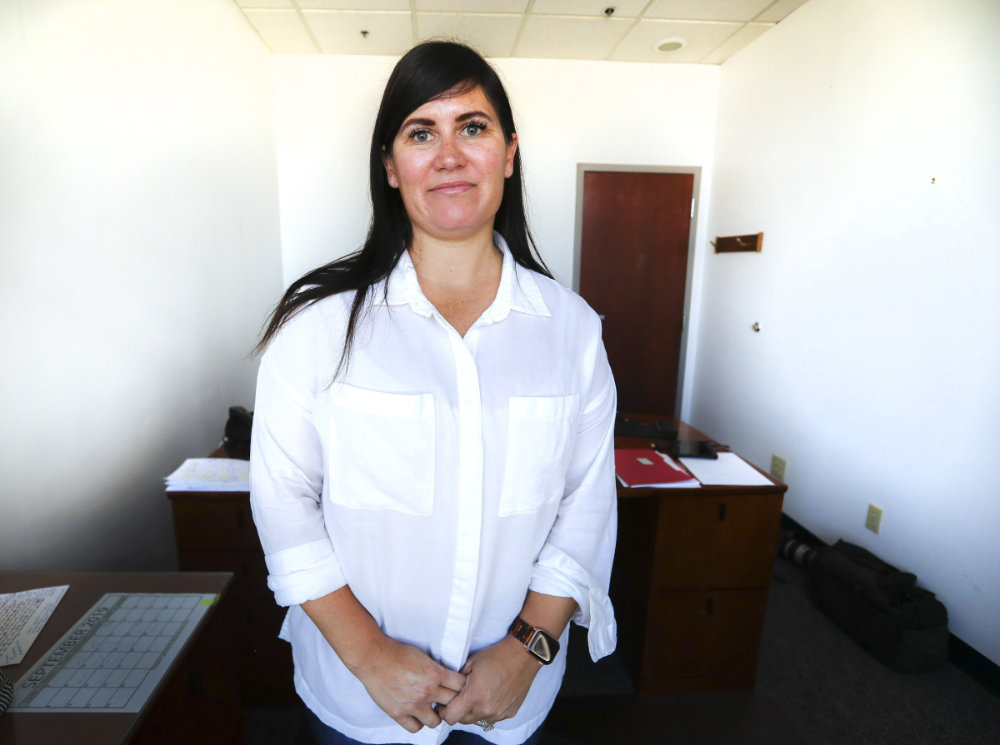
Photo Credit: Steve Griffin, Deseret News
Survivor’s guilt convinced Rodier that her value was tied to her trauma. And that was the lie she needed to unravel.
After that, she was able to escape those feelings of inadequacy and pain. She was able to find joy in life’s daily blessings and happiness in her friendships. Whitby returned to her life, and eventually, he’d propose. Even that, however, wasn’t free from the shadows of the past.
“We were up at a cabin, and I took her on a hike one day and got down on one knee and proposed,” Whitby recalled. “She graciously said yes, but I kid you not … it was like the gods were just laughing with irony because literally, within 30 seconds … a bunch of campers a half mile up just started blasting rifles, just target practicing. And I was like, ‘You’ve got to be kidding me!'”
They both laugh, and then Yvette adds, “It was definitely a quick kiss, and then I think I started crying — more because of the gunshots, not because of the proposal.”
Then she looks at her husband, “Sorry!”
He laughs, “We’re big on irony and laughter. It was like, ‘OK, back to reality.'”
Another shooting death
The couple enjoyed a happy, stable life until one afternoon in 2014. Rodier was working as the victim witness coordinator for the U.S. Attorney’s Office. She was in the federal courthouse on April 21, 2014, when a defendant rushed toward a witness testifying in one of the courtrooms and was shot and killed by a U.S. marshall. The courthouse was locked down for several hours, and when Yvette was finally allowed to leave, she was shaken to her core.
“It was so scary for me and it was probably the most anxious and fearful I have been since we were shot,” Rodier said. “And I don’t think I wanted people to really know or feel bad for me, or I just kept it to myself.
She was desperate to keep her pain to herself because she worried it would give those shadows power over her all over again.
“I think I was hoping I could just do it all on my own,” she said. “And I couldn’t. I did go back to therapy, which I think was very helpful. And I’m glad that I did. But I hadn’t wanted to be in therapy for a long time, I’d felt pretty solid.”
She quickly realized that her strategy of “pushing through” wasn’t going to work.
“I think I was extra terrified because I was responding so negatively,” she said. “And then I was so crushed, that I wasn’t going to be able to get past it. I thought if I made it through so many years, and I did OK, but if this, if this is the way I’m responding to this shooting, maybe this is going to be my new normal because I can’t do it. I can’t push through it. I really, I was stuck for quite a while.
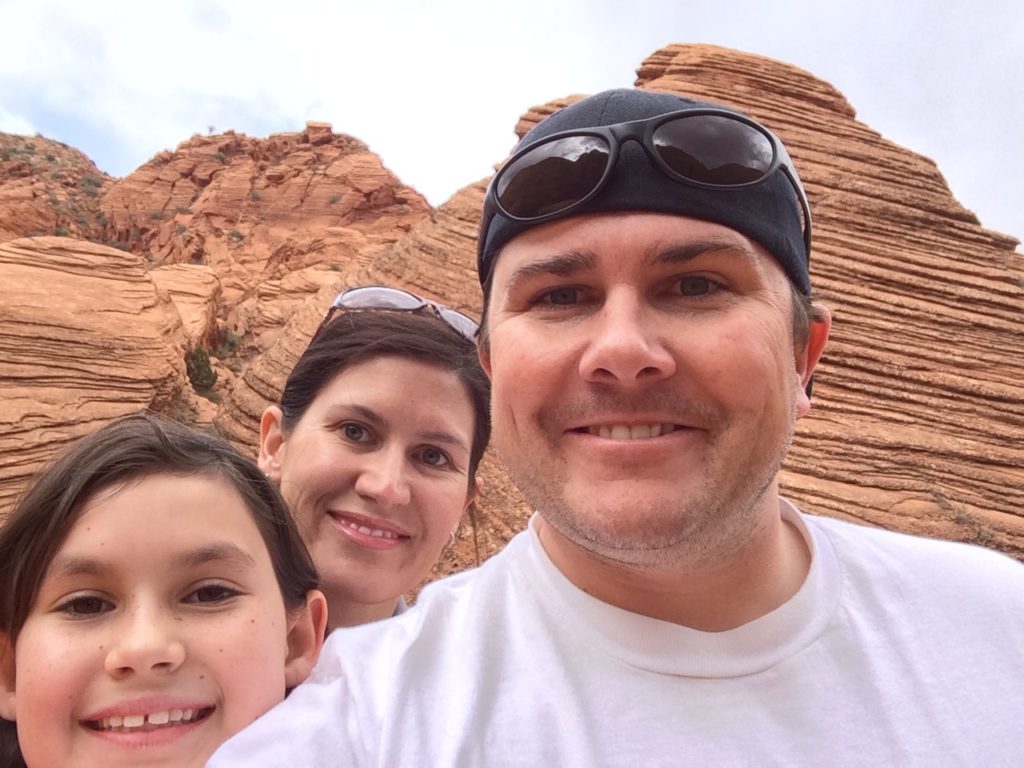
Photo Credit: David Whitby
“But Dave saw all of it. I was a mess for months after being in that room (near the shooting). The noise, the smells, I hadn’t experienced anything like that since we were shot and it brought so much back, and I think what I missed most was that I had gotten to this really lovely place of safety. And I felt safe everywhere I was, especially in the courthouse. And it took away that safety for a long, long time. And that was really hard for me.”
Her husband had to walk her to and from work, and she struggled with some of the old demons, while battling some that were new. Eventually, she found her footing again. She decided to take a job with West Valley City as a prosecutor, and she finds it an impactful and empowering way to advocate for a responsive criminal justice system.
“I really missed the courtroom,” she said of why she changed jobs. “I mean, I was in the courtroom, but I missed the advocacy that can be there. So when I was doing victims’ rights, I was in the courtroom in front of the bar arguing, and prosecution just always seemed like something I could do. I wasn’t sure. So I’m grateful West Valley gave me a chance to try it. And I love it.”
Rodier and Whitby have built a joyful life together as they acknowledge the realities of the past without being held prisoner by it. Life would give them beauty and pain, but they’d navigate it all together. Through it all, those who know her best say she’s stayed optimistic and generous.
“She sees the world in this unique light, where she has every opportunity to pay attention to the darkness or the hard things that are going on,” Danielle Rodier said. “Even in her job, she sees a lot of blech. And she still wants to share love and light with everyone. I can say that she’s not a victim of her story. She was a victim in her circumstance. But she has not carried that story with her as the victim, which is so beautiful. She’s used it to … empower herself and others.”
And while Rodier and her family have worked so hard to build a life that keeps the shadows in check, a question from the man who shot her forces her to reconsider those choices.